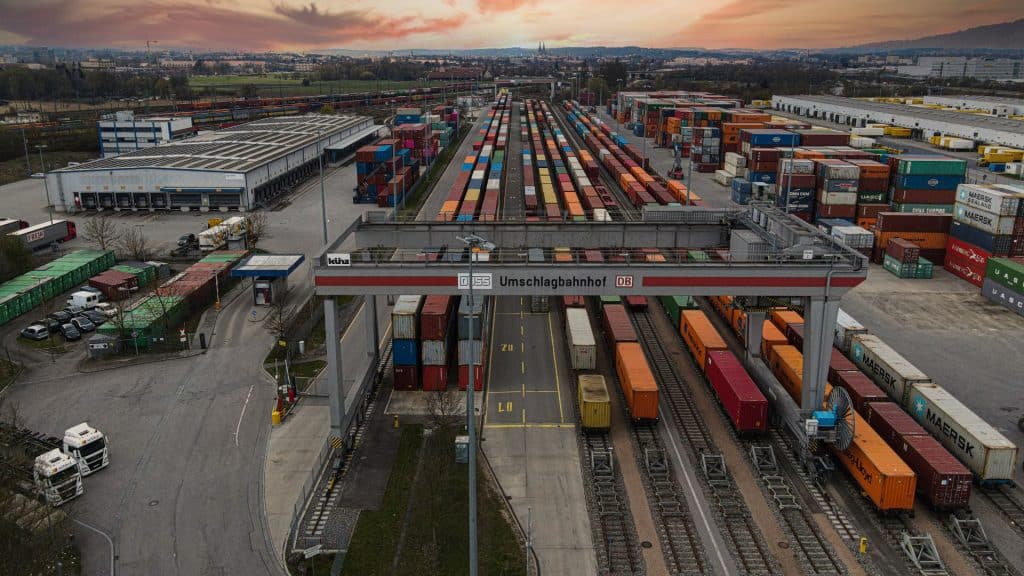SANCTIONS IMPACT EXPANDS FROM TANKERS TO CONTAINERSHIPS
The recent efforts by the European Union and the UK to target more tankers linked to Russia’s oil trade and the United States’ large sanctions action this week against an Iranian trading network are beginning to impact across the shipping industry. As the efforts are now reaching beyond tankers to also include containerships, analysts expect the sanctions
will continue to reshape shipping. Tankers were the first target of the sanction packages, and reports that individual ships have been idled became common as the sanctions grew. However, the impact seems to be growing as the U.S. and now the EU have begun to go after refineries and products refined from Russian oil. Donald Trump has said he would target more buyers of Russian oil if his deadline for a Ukrainian ceasefire is not met.Concurrent with the listing of the containerships, the U.S. Department of the Treasury’s Office of Foreign Assets Control (OFAC) issued a “General License” which authorizes limited safety and environmental transactions and the offloading of cargo involving certain persons or vessels blocked on July 30. The 22 containerships, including the 16 linked to SeaLead, have till midnight on October 1 to offload cargo that was already aboard except at ports in Iran or Russia
US CONTAINER PORTS WARN AGAINST TRUMP BUDGET CUTS
WASHINGTON — Executives from the largest US container and energy ports that had been set to receive close to $330 million this year for maintaining key infrastructure are warning Congress not to accept the Trump administration’s plan to cancel the money.In a letter sent Thursday to lawmakers responsible for appropriating the Harbor Maintenance Trust Fund (HMTF), the American Association of Port Authorities (AAPA) and 22 port directors asked that they restore requirements agreed to by Congress in 2020 – but which the administration has stripped from its FY25 and FY26 budgets – that allow “donor” ports, which typically include large container ports, along with ports that specialize in energy cargo, to receive a more equitable share of the trust fund as well as to be able to use it for projects other than harbor maintenance. During a water resources budget hearing in June, U.S. Senator Patty Murray, D-Wash., called it “troubling” that the Trump administration believes it’s not the federal government’s responsibility to provide the funding “even though that is one of the explicit purposes Congress passed into law,” she said. “That is really unacceptable.”

MAERSK WARNS US AGAINST UNILATERAL SHIPPING RULES
WASHINGTON — A unilateral strategy to prevent foreign ship owners and operators from undercutting America’s trade interests could backfire if US regulators decide to take that approach, shipping giant Maersk warns.In comments filed in response to the Federal Maritime Commission’s flag registry investigation, Maersk (MAERSKb.CO) recognized the need
to crack down on flag states with weak regulations and enforcement measures that can be exploited by vessel owners and operators to undermine fair competition. But FMC’s effort to raise standards for so-called flags of convenience – registries with relatively little regulatory oversight – could be potentially harmful for the industry, according to Maersk, if the agency were to create its own enforcement regime, such as a national list of “approved” or “unapproved” flag registries. To support that strategy, Cardamone cited research GFI conducted in 2022 on seizures made by U.S. Customs and Border Protection (CBP) of goods taken from foreign vessels. Between 2018 and 2021, in instances where CBP publicly disclosed the name of the ship, more than half of the cases revealed that the ship was flying a flag of convenience, GFI’s research found.
EXCESS, UNIDENTIFIED BAGGAGE IN CONTAINERS IS BREAKING THE BACK OF SHIPOWNERS
Containerisation has been a game-changer in the carriage of goods. However, in the last decade or so, unscrupulous shippers and freight forwarders to save a few dollars on freight, have seriously jeopardised an efficient and safe mode of cargo in containers by falsifying container weights, cargo contents as well as not packing and lashing goods within the container as per requirements of international standards and the International Maritime Dangerous Goods (IMDG) code. To name a few container ship accidents in recent years: 2012’s MSC Flaminia, 2017’s APL Austria, 2018’s Maersk Honam, 2020’s ONE Apus, 2021’s Maersk Essen, Maersk Eindhoven, XPress Pearl, and MSC Messina, and from this year there’s been the MSC Elsa-3, Grande Brasile, Altay, and Wan Hai 503. As per Lloyd’s Register, misdeclared cargo (weight and contents) is the third contributing factor causing containership accidents. As misdeclaration can be catastrophic, wrong or false declaration should be treated as a cognisable offence by all members states of the IMO with suitable deterrent punishments and heavy fines mandated in their respective laws.